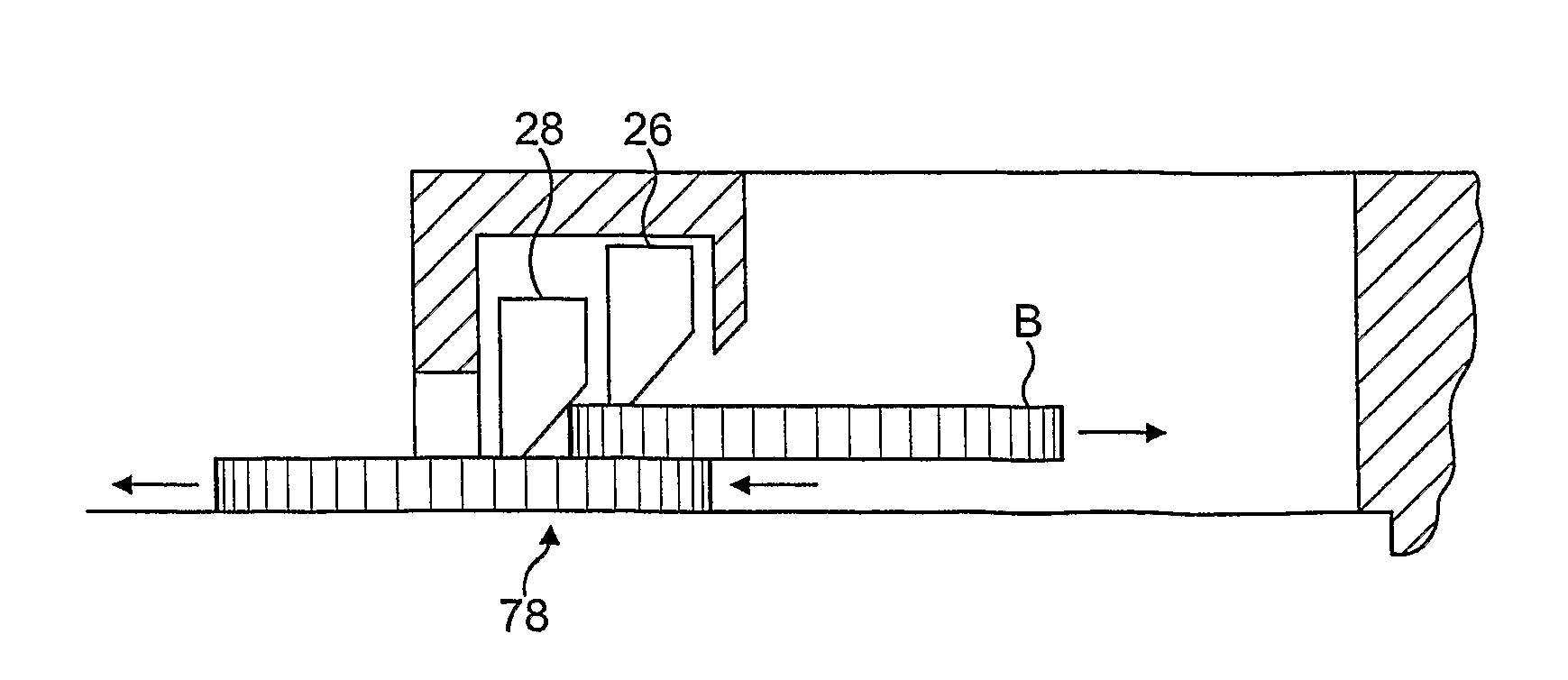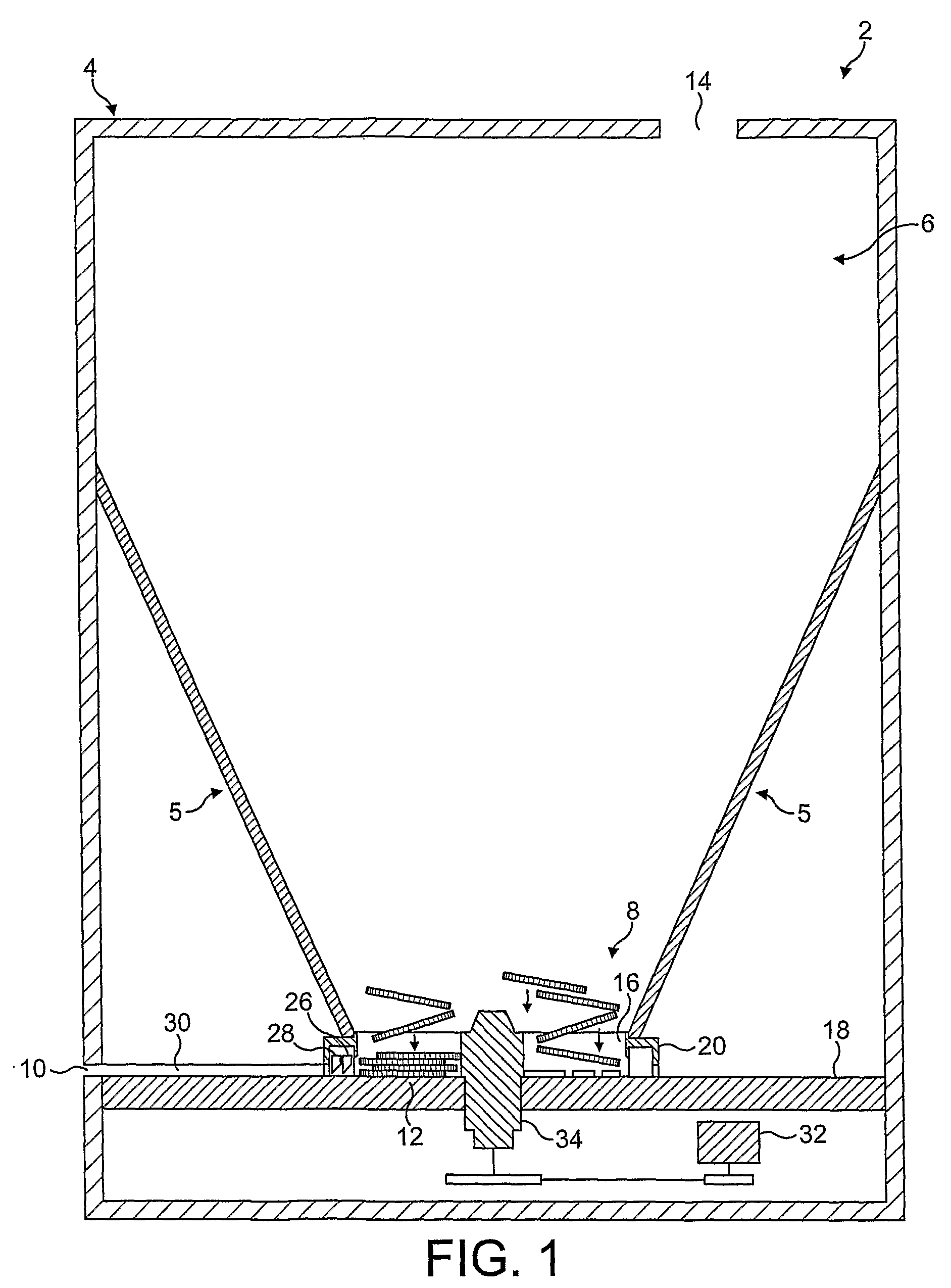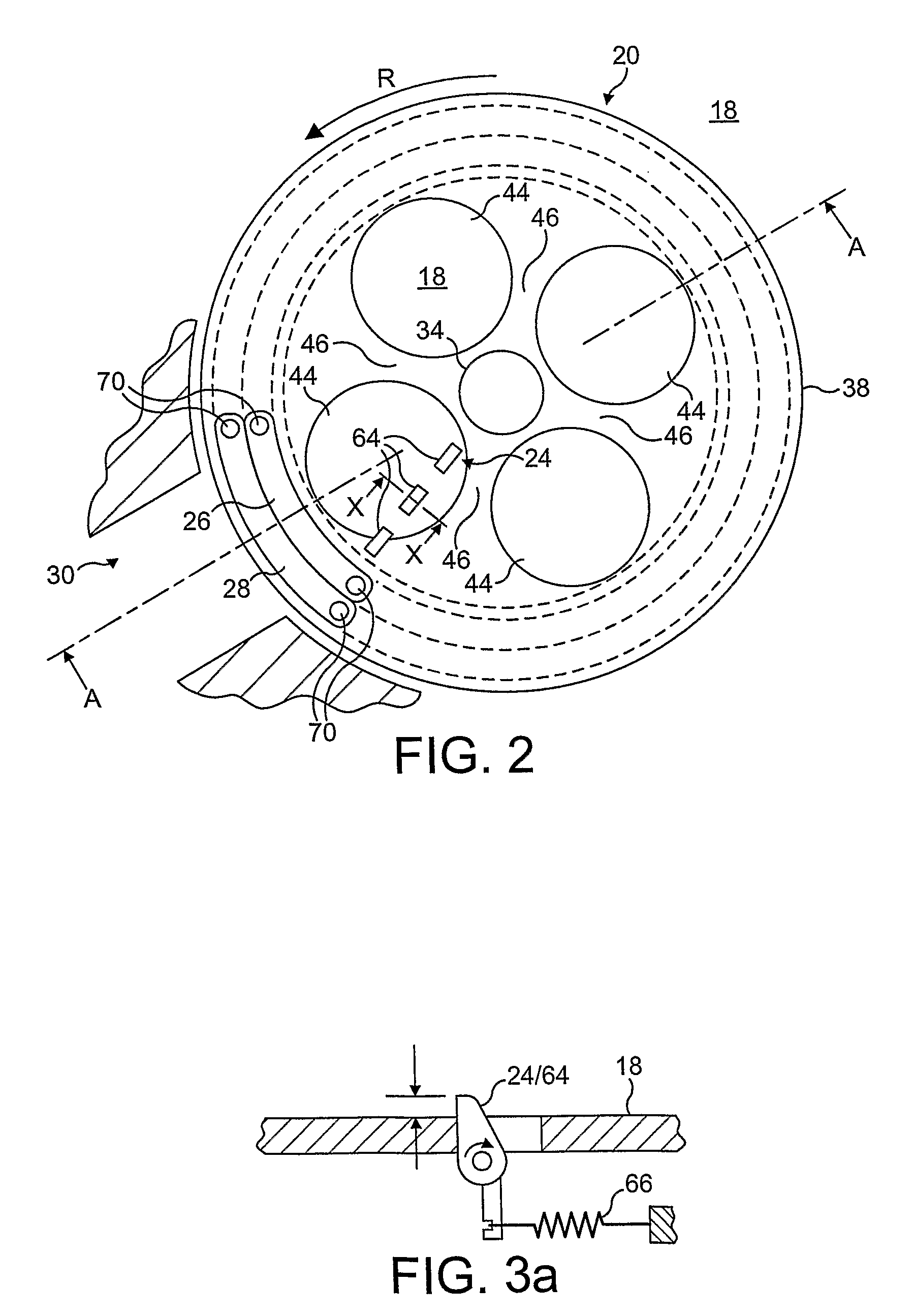Although universal hoppers have great advantages, particularly since identifying and sorting extracted coins is an area of technology that is well evolved, they also have inherent difficulties associated with them.
One of the biggest challenges that must be overcome is the specific requirement for coins to be dispensed individually which arises, for example, because most coin sorting and identifying mechanisms, i.e. the mechanisms generally located immediately downstream of a universal hopper, only work reliably when supplied with a stream of individual (single) coins.
A key problem that is well documented in the prior art is that where a hopper's internal coin extraction mechanism is set up to extract coins of a comparatively greater thickness it is possible for two coins of a comparatively lower thickness to stack on top of each other to be dispensed in combination (i.e. not individually, as required) because they mimic the shape of a single thicker coin.
However, it has been found that the double coin problem generally forces a compromise having to be struck between (i) the variety of coins that can be processed in a given hopper and (ii) the mechanical complexity, and hence associated cost and reliability, of the internal parts of the hopper.
Universal hoppers that support a great variety of coin diameters, thicknesses and shapes generally require a large number of complex parts, particularly to deal with the double coin problem, and are thus expensive, whilst hoppers that have a simple, reliable and cost effective structure are generally limited to either a single dimension of coins or a very narrow range of coin sizes and shapes.
Clearly, EP 0017610 only offers a very limited solution to the double coin problem.
Additionally, the solution of EP 0017610 is only applicable where thinner coins indeed have a smaller diameter than thicker coins, which is not given in many monetary systems around the world.
It is clear that, although EP 0017610 does support a limited amount of variation in coin dimensions, it does not completely fulfil needs in this respect.
Nevertheless, what little flexibility EP 0017610 offers in terms of coin dimensions comes at a heavy price in the context of complexity of design.
The device of EP 0017610 comprises a large number of small components and the structure of the second stripping arm in particular is complicated and sensitive.
This in turn means that the device of EP 0017610 is expensive to manufacture and maintain and likely to be relatively vulnerable to faults and wear and tear.
Nevertheless, it requires painstaking calibration of the first and second stripping arms to take into account the specific dimensions of the range of coins that is processed.
There is also potential for coins to get wedged under the non-biased first stripping arm.
Further, the row of balls acting as the second stripping arm in particular is expensive to manufacture and replace (as would be necessary if the diameter of processed coins were to vary).
In summary, whilst DE 333 0441 supports a greater variation in coin dimensions, it is possibly even harder to maintain, configure and manufacture, largely as a result of the row of balls.
Additionally, the second stripping system, although flexible in terms of the dimensions of input coins is mechanically complex since it requires a drive mechanism and belt.
This mechanical complexity, coupled with the need for precise calibration makes the device of U.S. Pat. No. 4,657,035 particularly susceptible to faults and expensive to maintain and produce.
The complexity of the device of U.S. Pat. No. 4,657,035 is increased further by the fact that the relatively simple structure of the narrow stripping arm itself leads to the need for an additional closing element that stops small diameter coins from being dispensed in the slip stream of larger coins.
In summary, the prior art does not disclose a truly satisfactory (i.e. simple, effective and reliable) solution to the double coin problem.
Prior art devices are all either inflexible in their intake of coins or highly complex, or both.
Furthermore, most prior art devices must be carefully configured to match the coins that they are to process, which in turn leads to high maintenance costs and greater fault vulnerability.
Finally it is noted that the vast majority of prior art solutions for the double coin problem are only suitable for use in planar coin disk type hoppers.
Thus hoppers that rely on a coin disk with apertures cannot at present be equipped with a system that would allow them to function effectively as universal hoppers, which are required to dispense a wide variety of coins individually.
 Login to View More
Login to View More  Login to View More
Login to View More 


